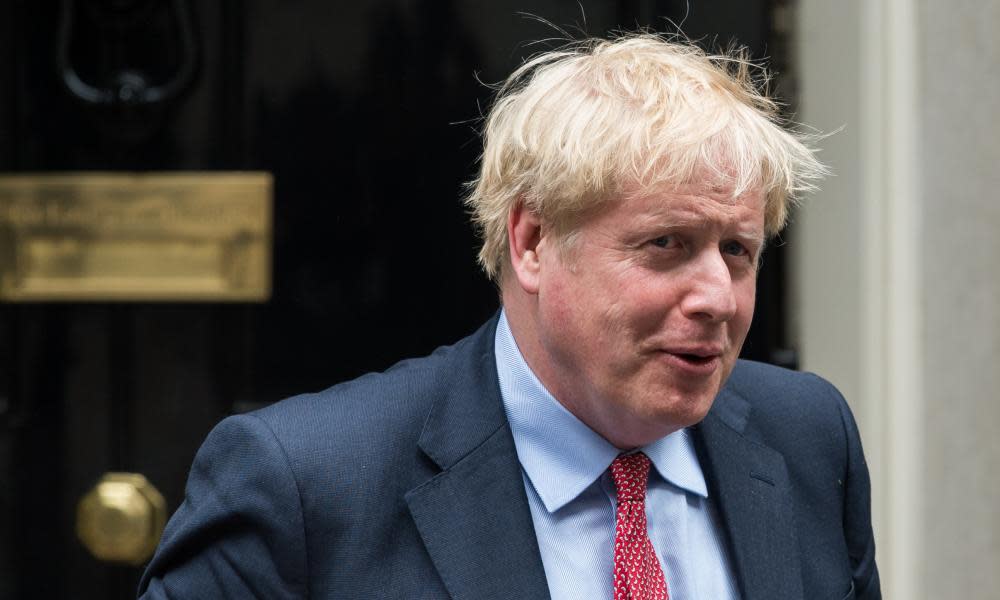The Guardian view on the Covid-19 inquiry: if not now, when?

On Wednesday the World Health Organization appointed a committee of inquiry, to be led by the former New Zealand prime minister, Helen Clark, and the ex-president of Liberia, Ellen Johnson Sirleaf, to evaluate the global response to the Covid-19 pandemic. They will produce an interim report in November and a full report in May 2021. For all its limitations, largely imposed by China, the inquiry is a highly important initiative. The pandemic is unrelenting and accelerating. If it is written with independence and authority, the report should help to produce a better model of international and national response to future waves of Covid-19 and to other pandemics.
Boris Johnson was rightly a supporter of an early and independent WHO inquiry. This stands in marked contrast to his cautious and evasive views on a possible inquiry into Britain’s own response. From early in the Covid-19 lockdown, there have been many calls for an inquiry here. Mr Johnson has made vaguely sympathetic noises, but he has never committed himself explicitly to the kind of inquiry that is needed. On 23 June, for example, the Liberal Democrat leader Ed Davey, who has led many of the calls, asked in the Commons whether the prime minister would set up an independent inquiry. Mr Johnson responded by saying: “I am sure there will come a moment when lessons need to be learned – indeed we are learning them the whole time – but I do not consider at the moment that a full-scale national inquiry is a good use of official time.”
This is now the standard ministerial response. The words deserve scrutiny. It is widely assumed that Mr Johnson is willing eventually to see a proper inquiry established into Britain’s handling of coronavirus. But this is naive. There is nothing in any words of his to support that view. Mr Johnson says he is in favour of learning lessons, which is not the same thing as establishing an inquiry, and he says they are already being learned. He says now is not the time, but he never gives any hint about what time would be better. The conclusion from all this can best be summed up this way: inquiry? What inquiry?
It is easy to see why Mr Johnson and his adviser Dominic Cummings might not want an inquiry. Britain’s handling of Covid-19 has been a litany of failures. No country in Europe has had so many coronavirus cases, or anything like as many deaths as Britain. Mr Johnson and Mr Cummings dominate this highly centralised government. Any serious inquiry into Britain’s response could hardly fail to find much for which they should be held to account. The idea that a Downing Street regime that loathes judges, ex-ministers and senior civil servants might put one of them in charge of such an explosive inquiry is for the birds.
It is time to stop accepting Mr Johnson’s prevarications. There is no good case for delay. Sweden, which has also made serious mistakes in its handling of the pandemic, set up an independent inquiry at the end of June, with politicians excluded. Its inquiry will produce an early report on care homes, followed by an interim report in the spring and a final report in 2022. France, another country that has already set up an inquiry, has established a parliamentary commission with wide powers. There is absolutely no reason for Britain not to follow suit. If government will not act, civil society must do so.
First, there should be a rapid, independent and transparent review of what has worked and not worked in Britain so far in order to equip us against a second coronavirus wave. Second, parliamentarians should establish a special select committee on the pandemic with powers to summon witnesses and documents. Finally, there should be a formal inquiry under the 2005 Inquiries Act, which must report by the middle of 2023, well before the next general election. None of this is going to happen without serious pressure from civil society and MPs. Parliament is just two weeks away from its summer recess. But these weeks are crucial if Mr Johnson’s deliberate delaying tactics are to be stopped, as they must be.


